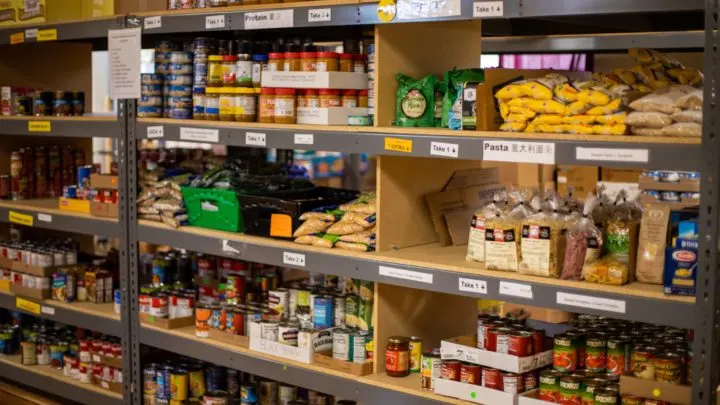When you and your family are in need of food, it can be difficult to navigate the confusing structures that are in place to combat hunger. For many families, it became necessary to use food pantries and other services for the first time during the COVID-19 pandemic, and the options and varying requirements can be especially confusing if you haven’t used them before. Below, we’ve attempted to answer some of the most common questions about how to find food pantries, who qualifies, and how to make the most of what they offer.
What is a food pantry?
A food pantry is a small access point for food distribution that serves community members directly. Food pantries differ from food banks in their size, and their purpose. Food banks are larger food distributors and often supply a network of food pantries with provisions, as opposed to feeding families directly.
Food pantries often operate out of houses of worship, community centers, Salvation Army locations, senior centers, and shelters/transitional housing.
Many people visit food pantries to feed themselves and their families while they wait for SNAP/food stamp or WIC benefits to arrive, if they do not qualify for public benefits like SNAP, or their SNAP benefits are not enough to cover a whole month.
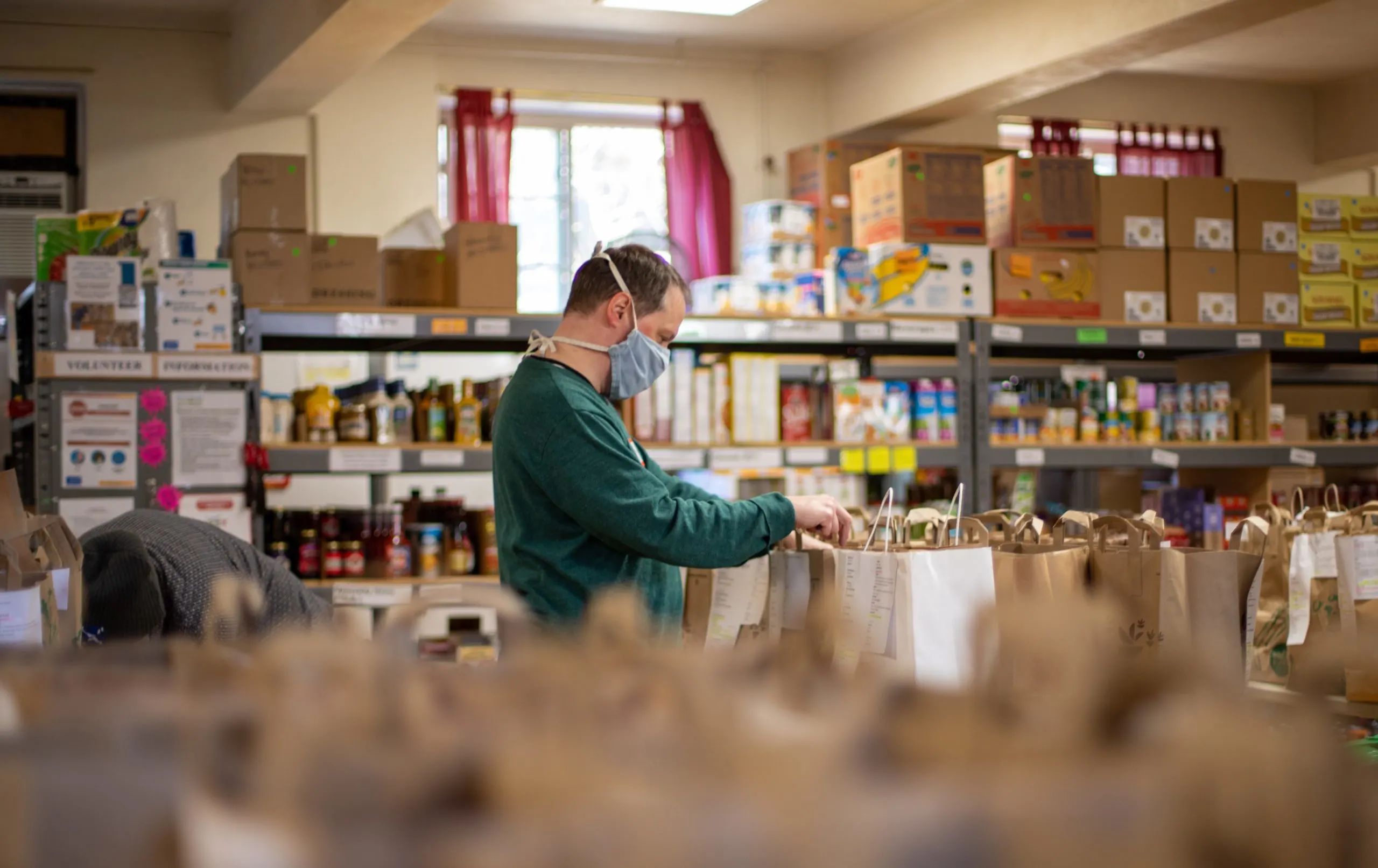
What can I get at a food pantry?
Each food pantry is somewhat different in what it offers, but most carry both perishable (fruits and vegetables, milk, eggs, meat, cheese, etc.) and non-perishable foods (canned foods, dry pasta and beans, rice). At some pantries, pantry volunteers will provide you with a pre-packed box of food to cover a few days worth of meals. At other food pantries, you will be able to shop for what you need, just like you would in a grocery store.
While the primary purpose of food pantries is to supply community members with food, many also provide things like diapers and formula for babies, pet food, household supplies like laundry detergent and toilet paper, and personal hygiene products like soap, shampoo, and menstrual supplies.
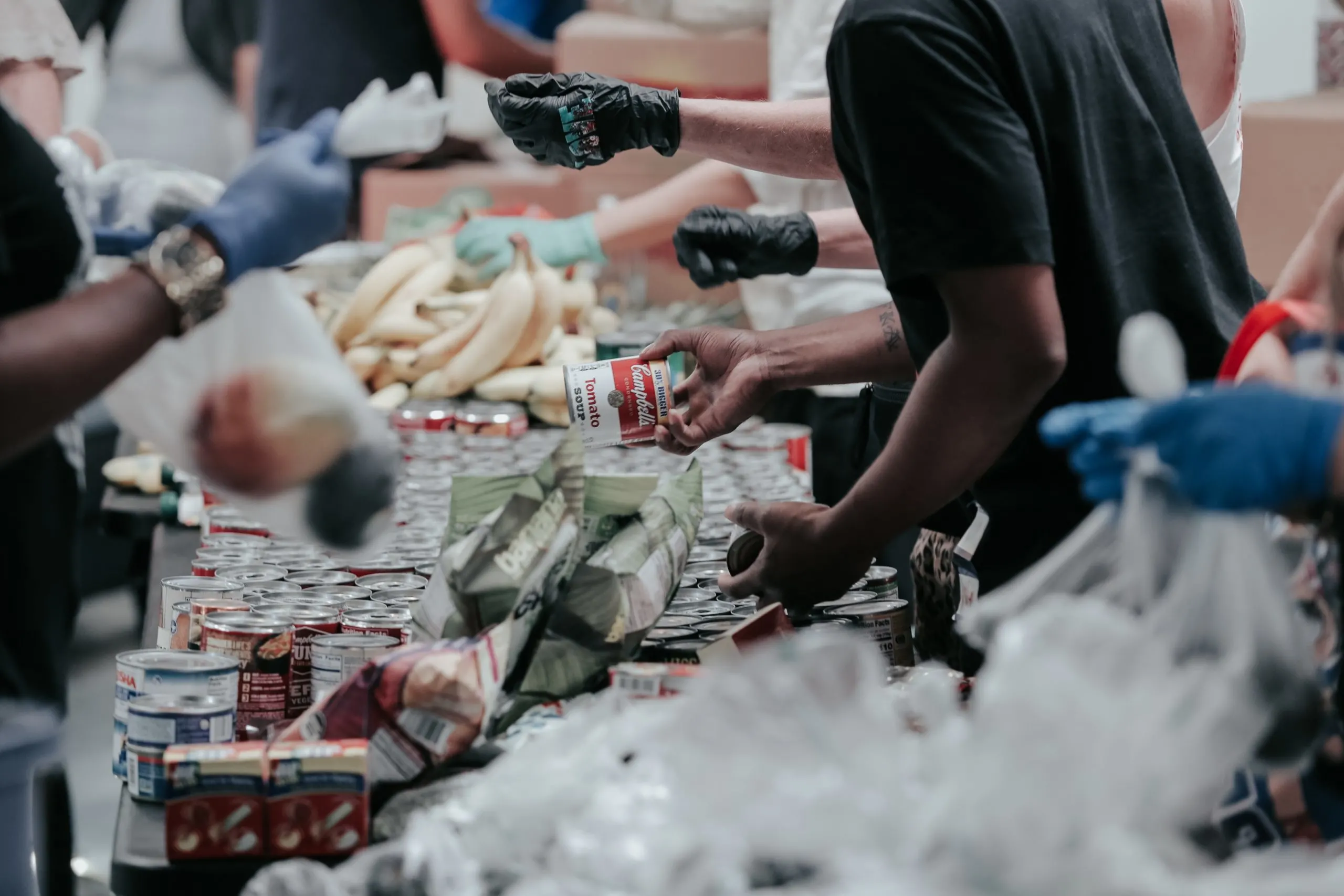
Who qualifies for food pantries?
The simple answer to who qualifies to use food pantries depends on the food pantry. Qualifications for food pantries depends on a number of factors. The most important? Who runs the pantry.
Many religious organizations and independently-run food pantries give out food based on what people say they need, and don’t require any documentation. This may be the best place to start if the eligibility requirements elsewhere are cumbersome, or you worry you may not meet them.
The Salvation Army, although it is a religious organization, has stringent requirements for accessing food through their sites. Community members may only use their food distribution service every three months, and require that you present a state-issued ID, a bill received in the mail to prove residency, and social security numbers for every member of the household.
Other food pantries align their eligibility requirements with the requirements for public benefits. In other words, if you have TANF, SNAP (food stamps), WIC, SSI, or Medicaid, you will almost certainly be eligible to use the food pantries in your area.
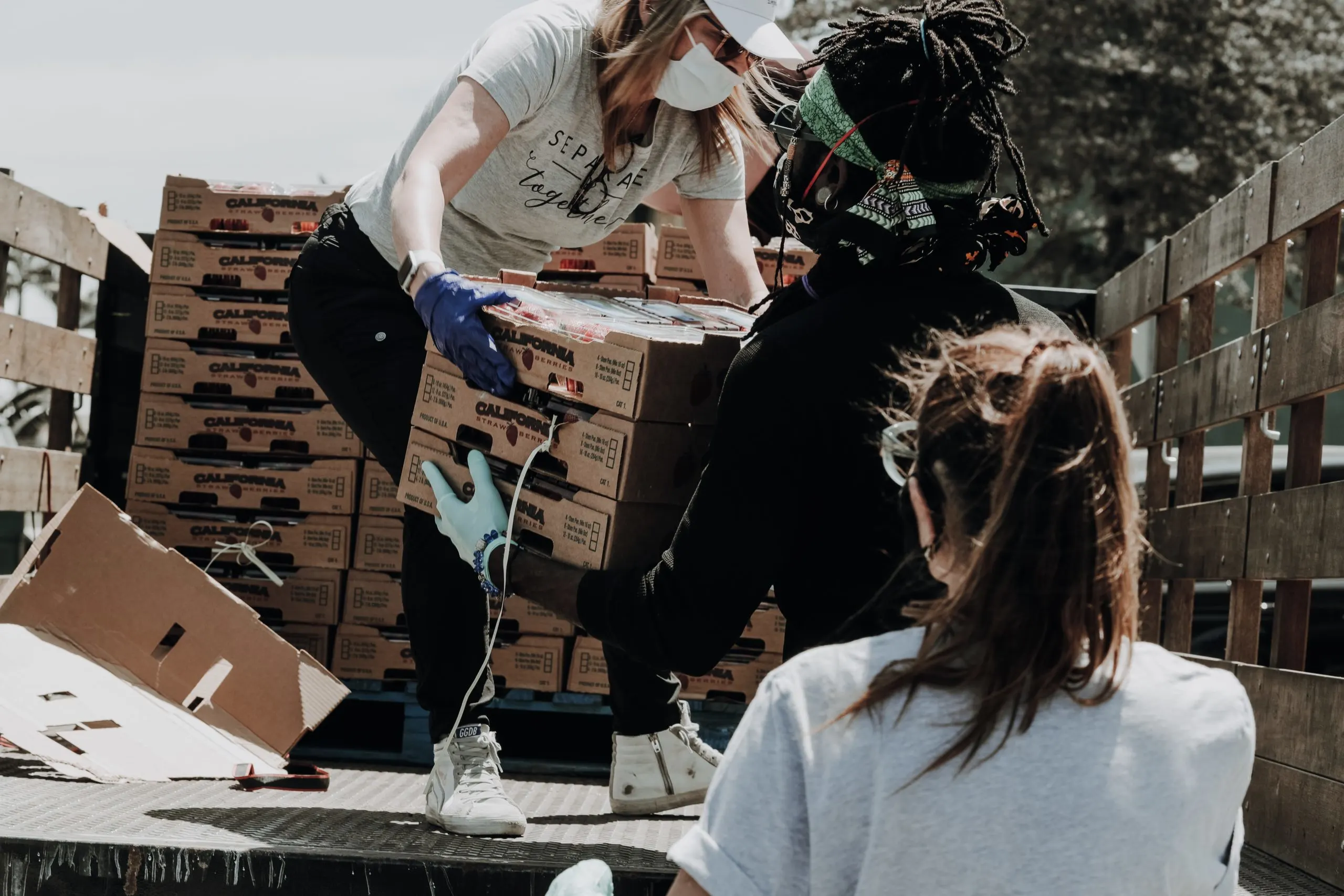
How to find a food pantry near me
Food pantries often operate out of houses of worship, community centers, Salvation Army locations, senior centers, and shelters/transitional housing.
There are a few different ways to locate a food pantry near you. Online listings of food pantries across the United States are available through Ample Harvest, FoodPantries.org, WhyHunger.org, Feeding America, and the Homeless Shelter Directory (you do not need to be homeless to use this directory).
To locate a food pantry by phone, you can call the United Way Helpline, simply by dialing 211. WhyHunger can be reached by phone at 1-800-548-6479. Many major cities across the United States and Canada also use the telephone number 311 as a hub for questions about municipal services. If your city uses 311, you can call and ask the operator to help you locate a food pantry in your community.
Finally, if there is a Mutual Aid organization operating in your area, they will likely be able to connect you with a food pantry, or offer food assistance to you directly. Mutual Aid organizations are not run by governments or non-profit organizations. Rather, they are collectives of community residents who provide support to one another. Many Mutual Aid groups also operate a community fridge, which is an actual refrigerator in a public space, where residents can help themselves to food whenever they need it. While there doesn’t yet seem to be a national listing of community fridge resources, you can try Google searching “community fridge” + your zip code to see if one exists in your community.
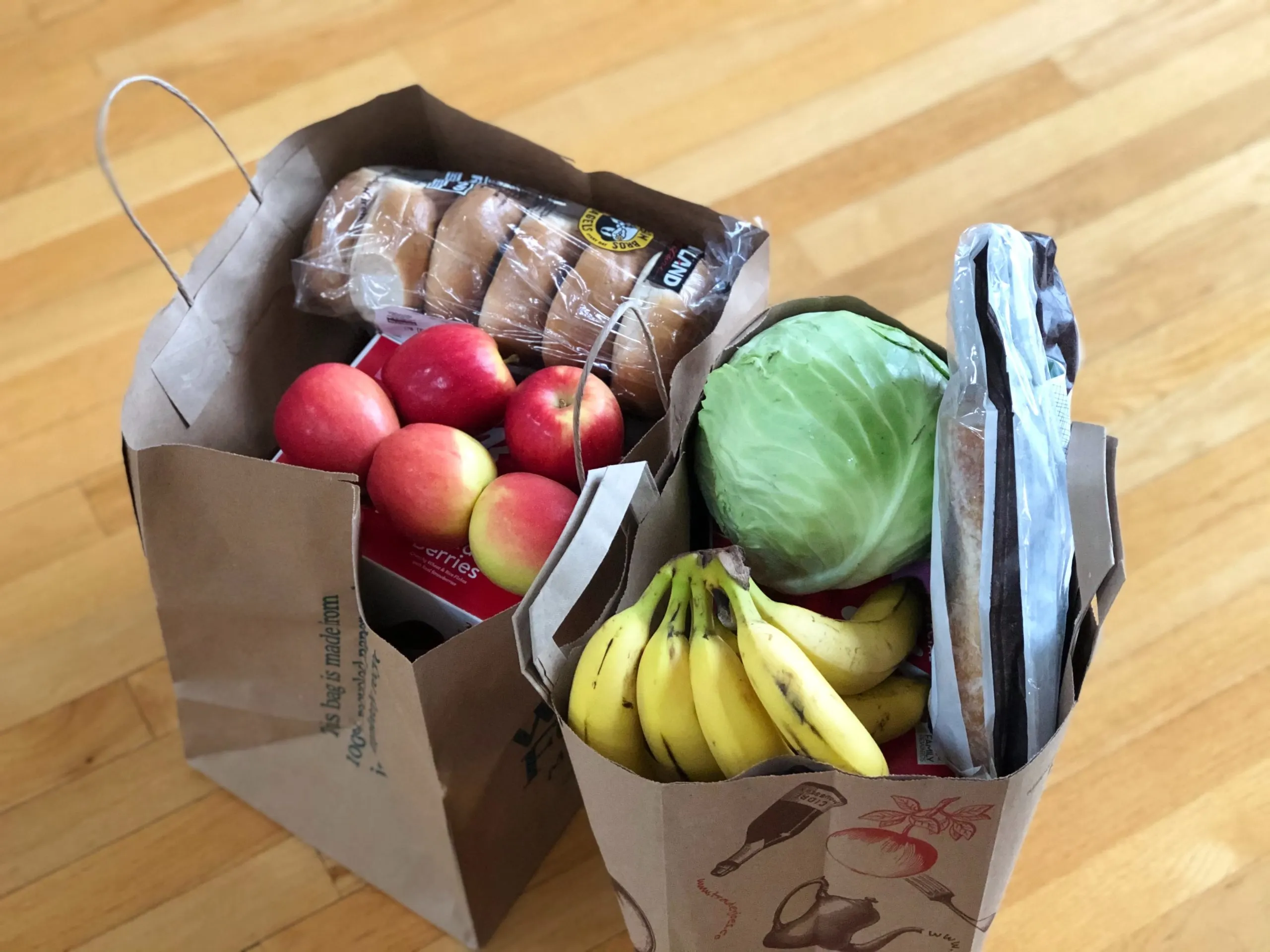
Tips for using food pantries
- If you need more food than one pantry provides, you can visit more than one food pantry in a week or month.
- Don’t be afraid to ask questions. If you have special dietary needs because of a medical condition, you should feel welcome to ask if they have the foods you need (do they carry lactose free milk? Gluten free pasta?)
- Go to the food pantry before going to the grocery store. Because you may not know what the pantry has before you go, you can fill in the gaps at the store later.
- Arrive early if you can, to avoid lines.
- Many of us have a hard time asking for help, or feel embarrassed to go to a food pantry. Just remember, we all need help of some kind, at some point in our lives. Food pantries are usually staffed primarily by volunteers, and they have chosen to be there because they want to be helpful. Some may even be there to give back after visiting a food pantry for their own family at some point.
Visiting a food pantry can be a huge help if you are experiencing difficult financial circumstances. Food pantries are there to help, so don’t be shy, and take advantage of whatever resources are available to you when you’re in need!

